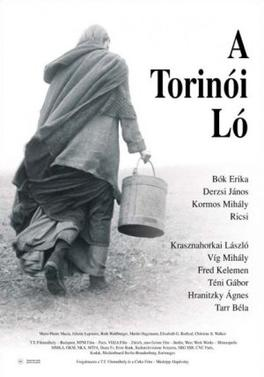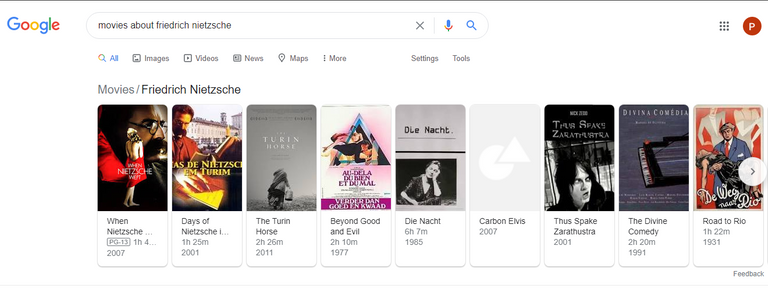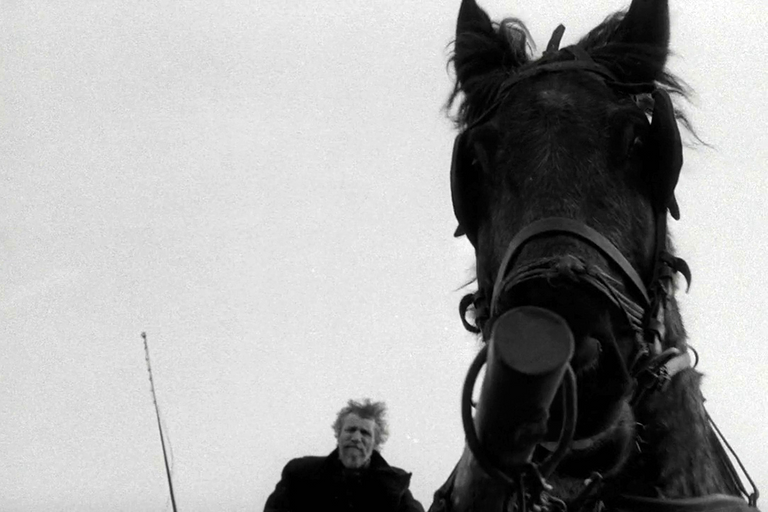
Source
👋 Hello HIVERS!
Before getting started, I would like to show my gratitude to HIVE user @yintercept for the selfless act of delegating some HIVE POWER to my new HIVE account. I greatly appreciate 🙏 the warm welcome and the contribution, I will make sure to put into great use.
During December I was doing a search on Google for video content related to the 19th Century German Philosopher Friedrich Nietzsche. I was interested in watching movies or any documentaries out there about him. As always Google never disappoints...

I am yet to watch all the movies in the search result, but for some reason I found the movie by the title The Turin Horse more appealing to watch at the time. It is a
Hungarian philosophical drama film directed by Béla Tarr and Ágnes Hranitzky, starring János Derzsi, Erika Bók and Mihály Kormos. Co-written by Tarr and his frequent collaborator László Krasznahorkai.
The movie being Hungarian subtitles had to suffice.
The film inspired by the anecdote of Nietzsche, starts with the voice of the narrator telling of the happenings on 3rd January 1889 in Turin, a City in Italy, where he witnessed the flogging of a horse, by the cabman who had lost his patience with the unresponsive horse, choosing instead to whip it. On witnessing this Nietzsche suddenly jumps up to the cab, and throws his arms around the horse's neck, sobbing before collapsing to the ground, suffering a mental breakdown, the breakdown not caused by the horse but rather by an underlying condition, some arguing that he had syphilis but the diagnosis has since been challenged and a diagnosis of manic-depressive illness with periodic psychosis followed by vascular dementia being put forward which he never recovered from.

According to the director Béla Tarr the film is about - the "heaviness of human existence"
Nietzsche's story is like an absurd punch line placed ahead of an extended joke, and what follows — seven days in the life of the horse, his owner and the owner’s daughter — is a kind of Genesis story in reverse, an account not of the world’s apocalyptic destruction but rather of its step-by-step de-creation. The wind continues to howl, and existence seems to grind to a halt as darkness swallows everything.
As a summary:
The rigors of life can grind you down. The rigor of art can have the opposite effect, and “The Turin Horse” is an example — an exceedingly rare one in contemporary cinema — of how a work that seems built on the denial of pleasure can, through formal discipline, passionate integrity and terrifying seriousness, produce an experience of exaltation. The movie is too beautiful to be described as an ordeal, but it is sufficiently intense and unyielding that when it is over, you may feel, along with awe, a measure of relief. Which may sound like a reason to stay away, but is exactly the opposite.
Despite it's simplicity the film is riddled with meaning especially for those who fancy exploring things not only on a top level but rather on what exists beyond the top level.
Congratulations @my-musings! You have completed the following achievement on the Hive blockchain and have been rewarded with new badge(s) :
Your next target is to reach 50 upvotes.
You can view your badges on your board and compare yourself to others in the Ranking
If you no longer want to receive notifications, reply to this comment with the word
STOPCheck out the last post from @hivebuzz: